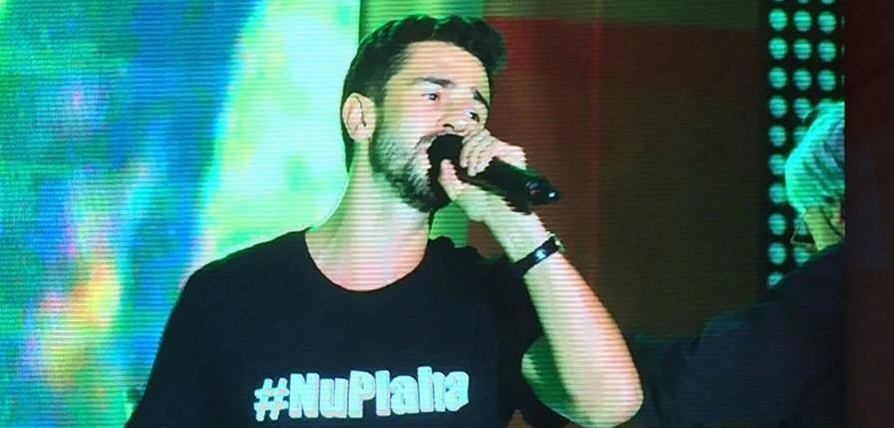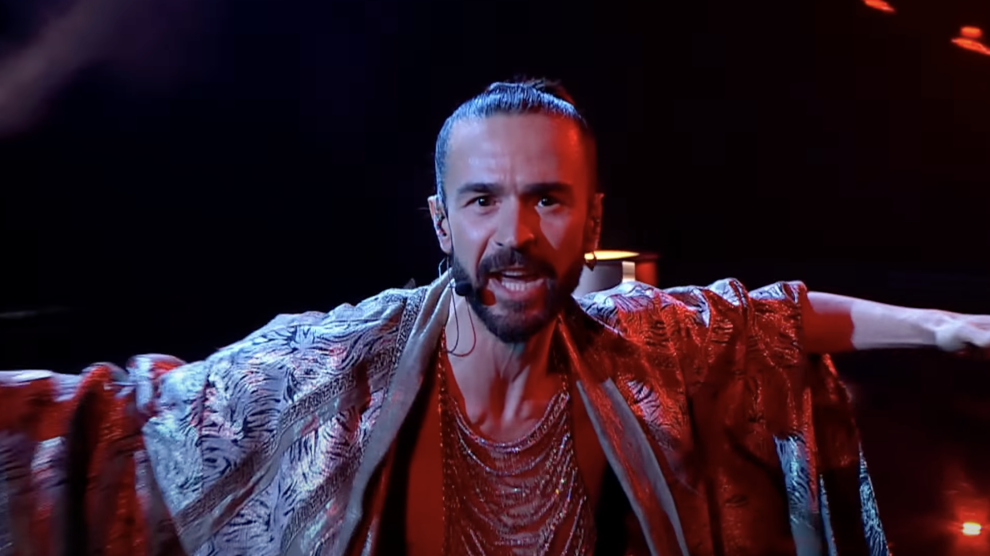Moldovan Eurovision singer Pasha Parfeni was one of the few to stand up for freedom. It cost him everything.
A local celebrity, Parfeni, was about to step onto the stage. But no one was ready for what he was planning to do. It was a late summer evening in August 2016. People gathered in the centre of Chișinău, Moldova’s capital, for a national concert. The army victoriously marched through the town.
This European country was marking 25 years of independence from the Soviet Union.
- The challenges facing female entrepreneurs in Moldova
- Is Moldova’s diaspora ready to return home?
- Studying in a phantom state: The Moldovan school standing up to Russian supremacy
But there was little to celebrate. The Democratic Party of Moldova, under Vlad Plahotniuc’s lead, was taking control of most aspects of the country: the courtrooms, the police, local governments, and banks. Between 2016 and 2019, he almost entirely controlled Moldova. Plahotniuc, who fled Moldova in 2019, has also been linked to the ‘theft of the century’—the disappearance of one billion US dollars from Moldovan banks in 2014. Transparency International called Moldova a “captured state”.
Out of fear, people would lower their voices when mentioning the “puppet master” Plahotniuc.
The concert at the heart of the city was about to begin. Moldova’s leadership sat in front of the stage, but a fence separated the VIPs from the rest of the people. A beloved musician, Parfeni, stepped on the stage and said to the microphone, “I am absolutely sure that you all dream of Moldova free of corruption and oligarchs.”
He unbuttoned his shirt and revealed the message #nuplaha on his t-shirt. #nuplaha had become a popular message used by those opposing Plahotniuc. The audience gasped. People were stunned. Seeing someone publicly take a stand against the oligarch was rare. In a country slipping into dictatorship, this was a courageous act.

Pasha Parfeni on that historic evening in 2016. Photo: Private Collection
What made Pasha take this step?
Eight years later, we sat down with Pasha to reflect. “Around that time, the minister of culture told me that if I don’t write anything inappropriate about the government, she will invite me to all the state concerts,” he recalls. That felt dishonest to him. “Lies bring problems and unconstructive things into your life. They bring a mistake in the formula of happiness.”
The last drop was when he saw that the country’s so-called leaders and elite were at the front of the stage, separated from the general audience by a fence. He then decided it was time to stand, hoping many would follow his example.
Lockdown
That didn’t happen.
“I had good relations with everyone,” he said. “I didn’t expect to be completely blacklisted.” After provocatively tearing his shirt on that stage, he was banned from performing everywhere – state concerts, television and radio stations, restaurants, and even private events. It was a total lockdown.
Most musicians shied away from taking such stands, but one other singer, Catalin Josan, also resisted and spoke up.
In the same year, in autumn, he sang in front of a sea of Moldovans waving European Union and Moldovan flags: “At least for a song, let’s get together. Let’s remember who we were and are,” Josan sang. The audience hummed along. A banner beside him said, “Let’s take our country back.” His friends’ circle was narrowing. People he thought he shared the same values with would step away and distance themselves from him.
Remembering that day, Catalin hoped it would bring hope and strength to people who thought things would never change. Catalin’s father, Nicolea Josan, took to the stage, too. This wasn’t the first time the father-son duo performed this song together. He had been singing with his father since he was a toddler.
In the late 1980s, his father, Nicolae Josan, had been at the “barricades” exactly the same way and took his son with him. Before, Moldovans were fighting communism, now experienced thugs. It seemed as if the Moldovan musicians kept fighting the same evil.
“I felt that things still hadn’t changed. Thirty years of independence, but the censor is still here,” Catalin remembers.
Diaspora to the rescue
About a million Moldovans live abroad and are actively involved in the country’s politics. Many of them went to look for a better life but still kept in touch with their family and friends left behind. They kept following the news and rooting for their homeland. They are often deeply connected to what is happening in Moldova. Once they saw that Pasha and Catalin got blacklisted because of standing up to the oligarch, they came to the rescue and invited them on a tour.
Pasha took his girlfriend, Yuliana Scutaru, along and traveled the world, visiting the expats. They went to Canada, the US, Ireland, and Italy. They were called “the courageous voices”.
“I feel a little of like diaspora. They helped me and protected me,” Pasha said.
Once Pasha and Catalin returned to their homeland, Plahotniuc’s time was coming to an end.
Plahotniuc fled Moldova in June 2019 after being pushed out of parliament as part of a government shakeup. He has been out of public view since then.
Back to Eurovision
Catalin and Pasha’s popularity grew in free Moldova, and last year, Pasha represented Moldova in Eurovision for the second time. He won his spot in the final contest, singing Soarele și Luna (The Sun and the Moon). With traditional melody and instruments, he brought Moldovan folk to life.
As a fully democratic country, he is now free to speak up.
“It’s such a huge comfort, to be honest,” Pasha concludes. “If it all happened again, I would do nothing differently.”
He is glad that the next generation of Moldovan singers is much more outspoken and free to speak. Catalin adds: “Maybe we helped a bit by bringing courage.”
This article was co-written by Tiina Kaukvere. Top photo: Pasha Parfeni performing at Eurovision 2023.
Unlike many news and information platforms, Emerging Europe is free to read, and always will be. There is no paywall here. We are independent, not affiliated with nor representing any political party or business organisation. We want the very best for emerging Europe, nothing more, nothing less. Your support will help us continue to spread the word about this amazing region.
You can contribute here. Thank you.







Add Comment